Are you considering resigning due to unsatisfactory work conditions? It's a tough decision that many face, and drafting the right resignation letter can make all the difference. In this article, we'll explore how to express your concerns professionally while clearly stating your intention to leave. Join us as we guide you through crafting a thoughtful resignation letter that not only communicates your reasons but also leaves the door open for future opportunities.
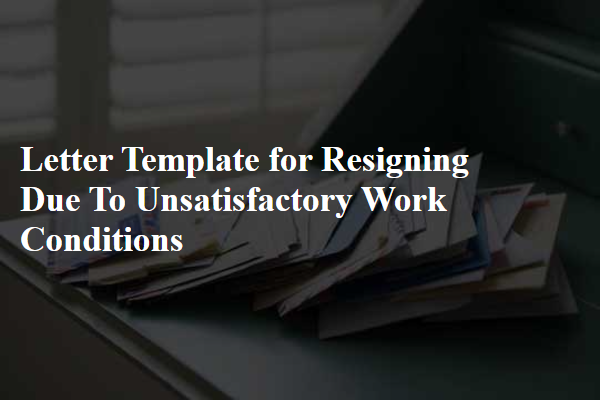
Professional tone and language
A resignation due to unsatisfactory work conditions often hinges on specific experiences and factors that affected the individual's role. Concise articulation of the reasons for departure maintains professionalism while clearly outlining the issues. The letter typically references pertinent workplace policies, interactions with management, and overall job satisfaction. Documenting these elements emphasizes a constructive exit, potentially paving the way for improvements in the organization. Each statement should reflect a commitment to quality work and a desire for better conditions. Choice of phrases can influence the tone, ensuring it remains respectful despite grievances. Aim for a clear expression of intent, concluding with appreciation for any positive experiences encountered during employment. Such approach can sustain relationships even in unfavorable circumstances.
Clear statement of resignation
In light of the continued unsatisfactory work conditions at XYZ Corporation, including a lack of support from management, inadequate resources, and an unhealthy work environment, I am clear and definitive in my decision to resign from my position as Marketing Specialist effective two weeks from today. My time at this organization, spanning over three years, has been overshadowed by ongoing challenges that have hindered my professional growth and job satisfaction. I hope this decision catalyzes necessary changes that improve the workplace for remaining employees.
Description of unsatisfactory conditions
Employees facing unsatisfactory work conditions often encounter various stressors that impact their job satisfaction and overall well-being. High employee turnover rates in some industries can indicate systemic issues like inadequate management practices, insufficient support resources, or lack of professional growth opportunities. Toxic workplace environments frequently stem from poor communication, leading to misunderstandings and conflicts among staff members. Additionally, unrealistic workload expectations and lack of work-life balance contribute to feelings of burnout and frustration. Physical aspects such as insufficient ergonomic office equipment or inadequate safety measures can further exacerbate employee dissatisfaction. Mental health impacts, like increased anxiety or emotional distress, are common consequences of prolonged exposure to these untenable conditions. Employees who choose to resign often seek healthier alternatives that align with their professional values and personal well-being.
Notice period and last working day
Resigning from a position can be a significant decision influenced by various factors, including unsatisfactory work conditions. Employees may feel compelled to leave a job if they experience ongoing issues such as lack of support, unrealistic expectations, or a toxic work atmosphere. The notice period, which varies by company policy (typically two weeks to a month), serves as a formal timeframe for transitioning responsibilities. The last working day is crucial for both the employee and the employer, often taking place on a specified date after the notice period concludes, allowing time for knowledge transfer and finalizing pending tasks. Understanding company policies regarding resignation ensures a smoother departure process and helps maintain professional relationships.
Expression of gratitude
Resigning from a position due to unsatisfactory work conditions can be a difficult decision, yet it's essential to express gratitude when leaving. A resignation letter should clearly communicate your intent to resign while maintaining professionalism and appreciation for the opportunities provided. Emphasizing positive experiences and relationships cultivated during your tenure can help maintain goodwill. Including specific instances where you felt supported can give context to your gratitude, while also maintaining the focus on your need for a healthier work environment. Respectful language and a concise structure will convey your message effectively, ensuring your departure is handled gracefully, around 2 weeks' notice being standard.
Letter Template For Resigning Due To Unsatisfactory Work Conditions Samples
Letter template of resignation prompted by poor workplace circumstances.
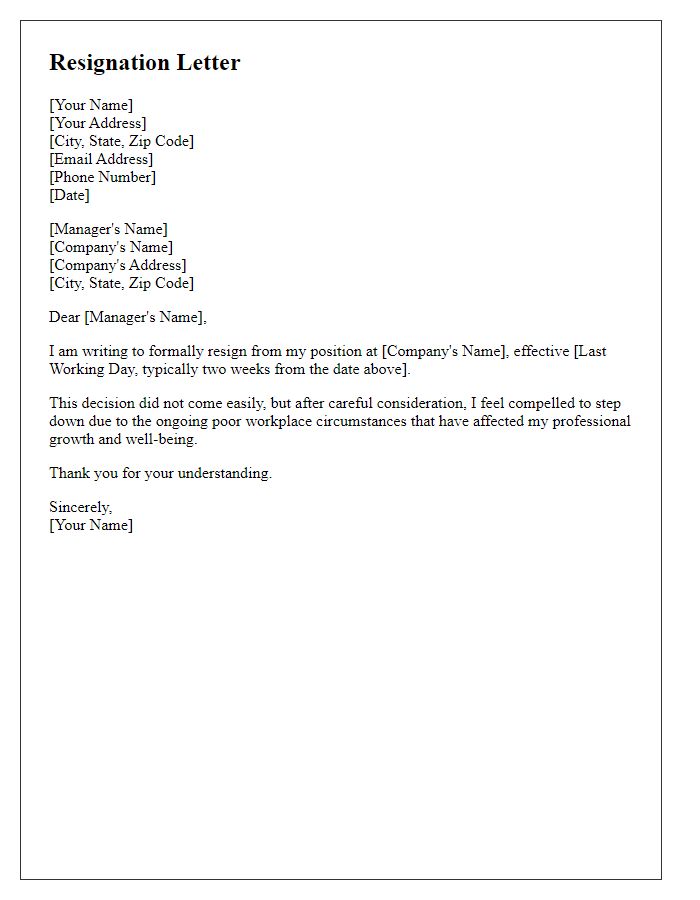
Letter template of resignation relating to unsatisfactory employment conditions.
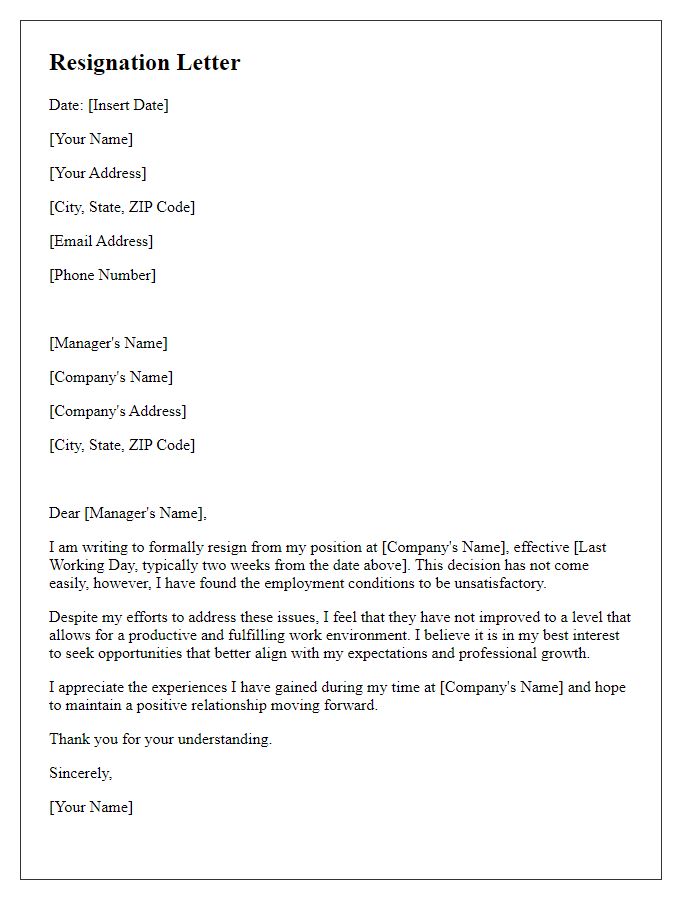
Letter template of resignation stemming from inadequate workplace standards.
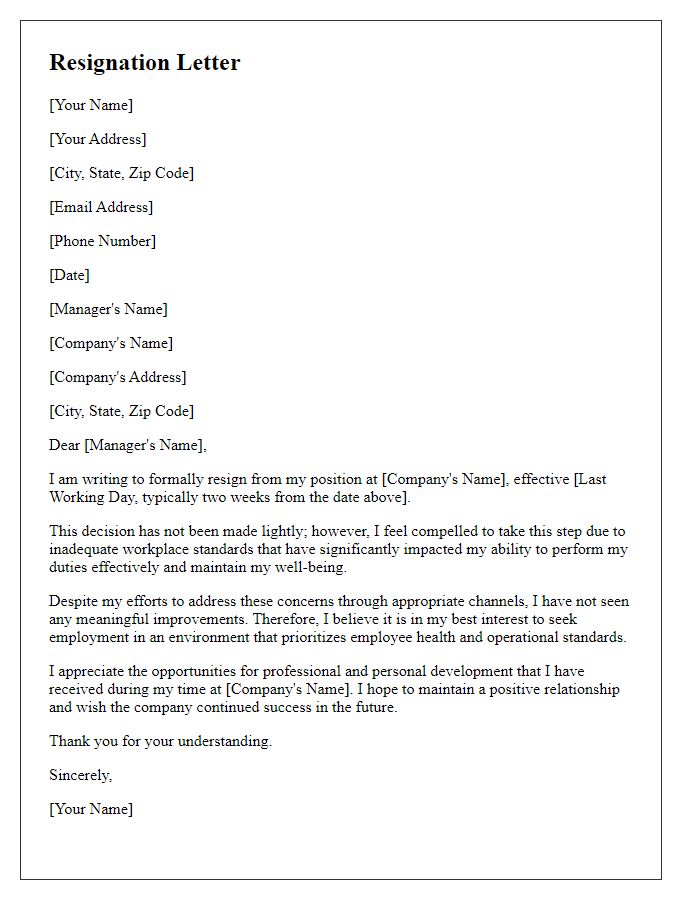
Letter template of resignation as a result of insufficient workplace resources.
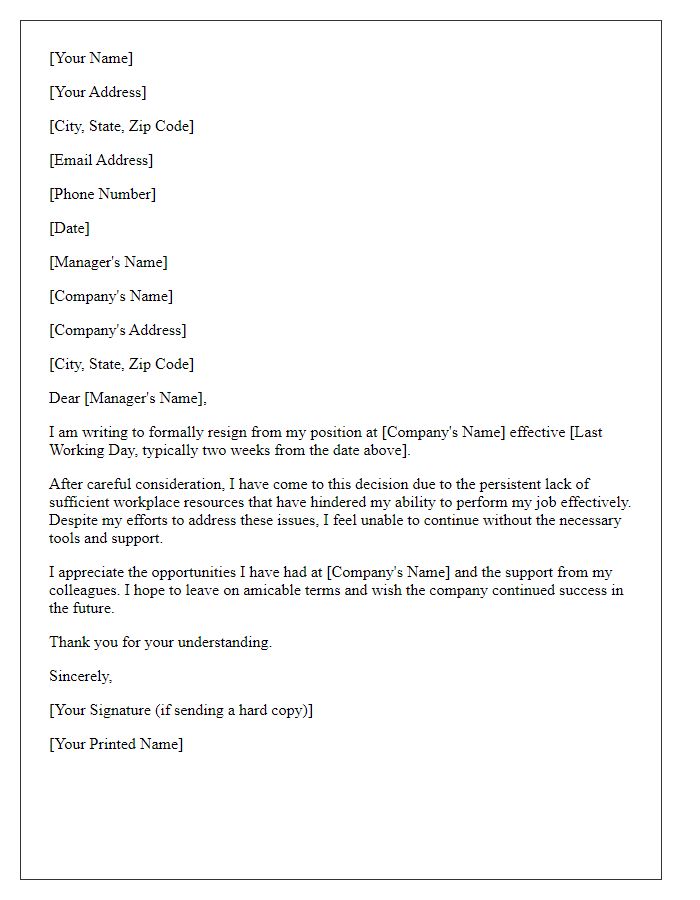
Letter template of resignation influenced by unacceptable work conditions.
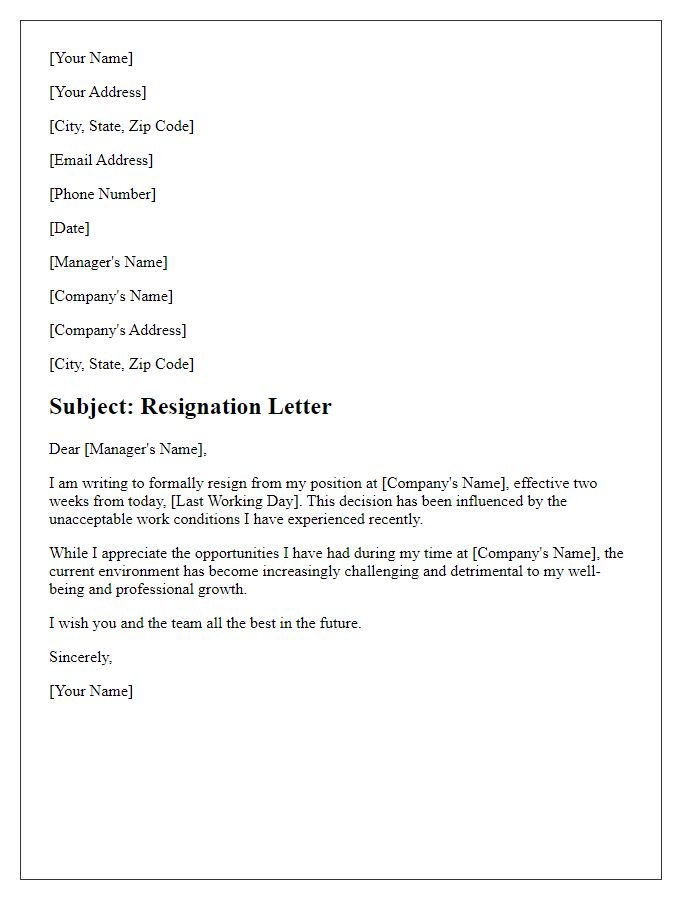

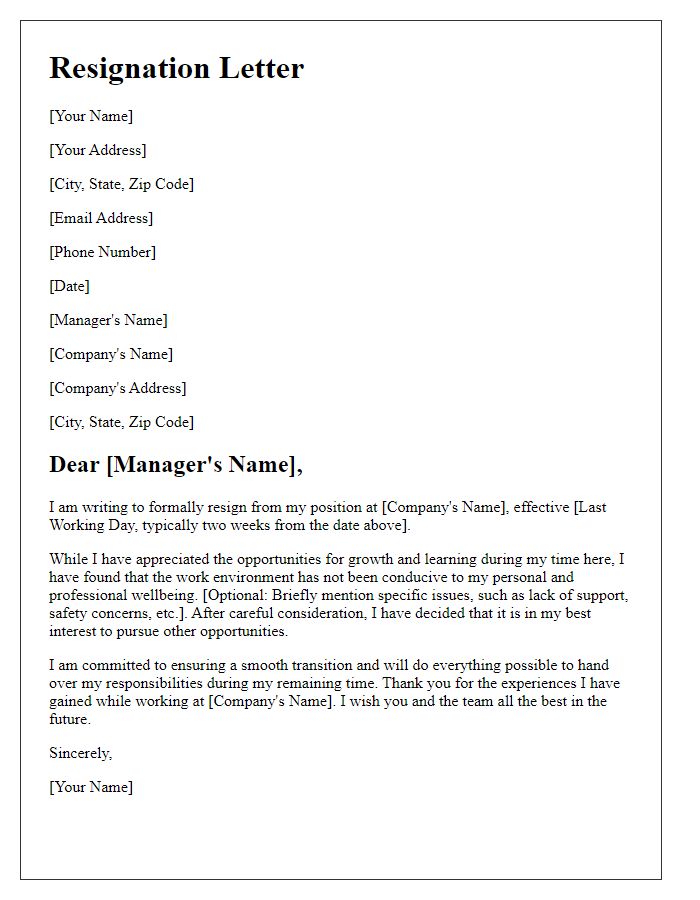
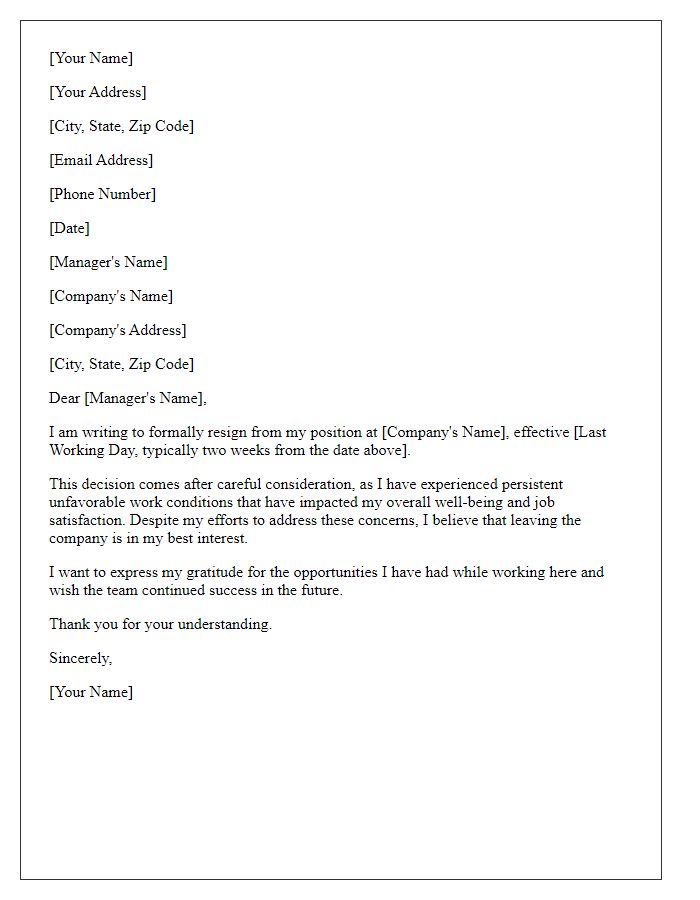
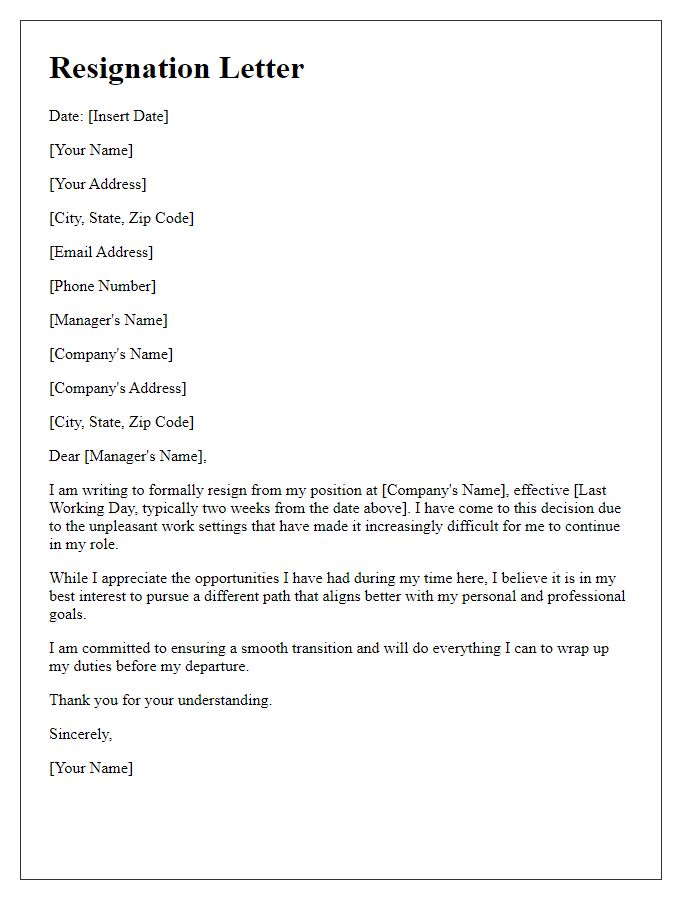
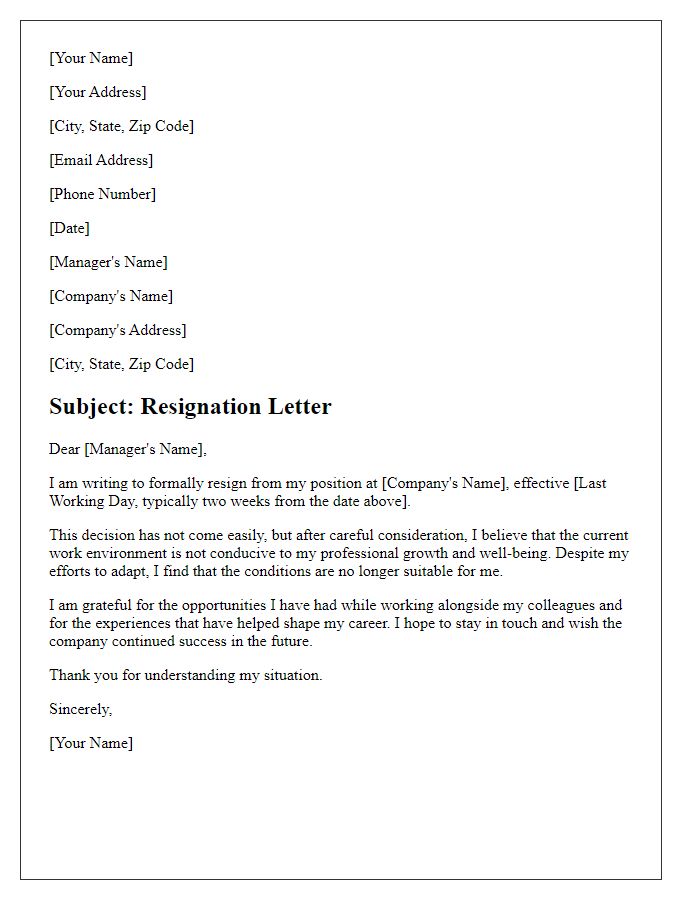
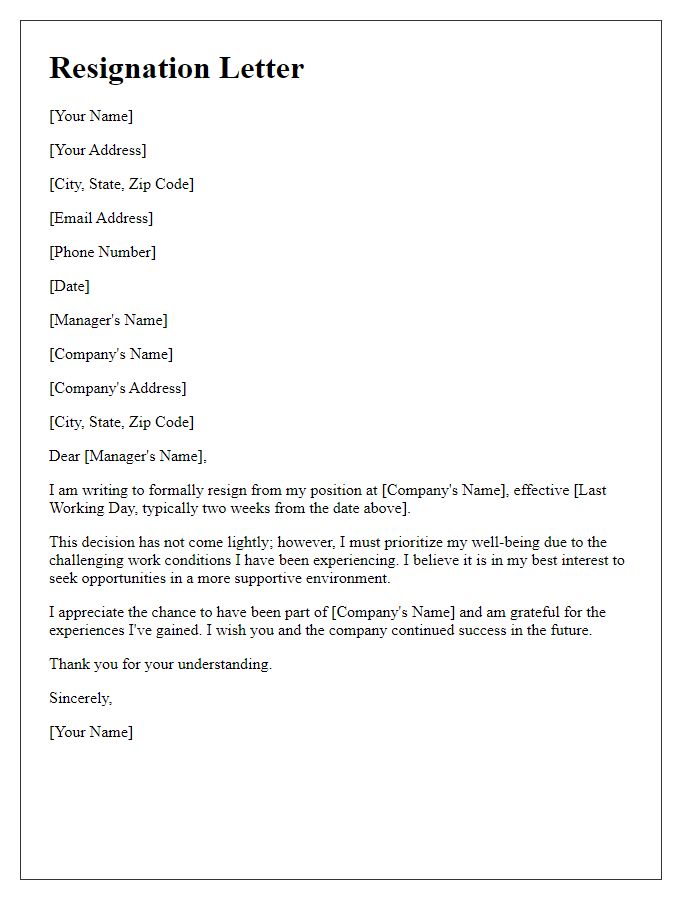


Comments